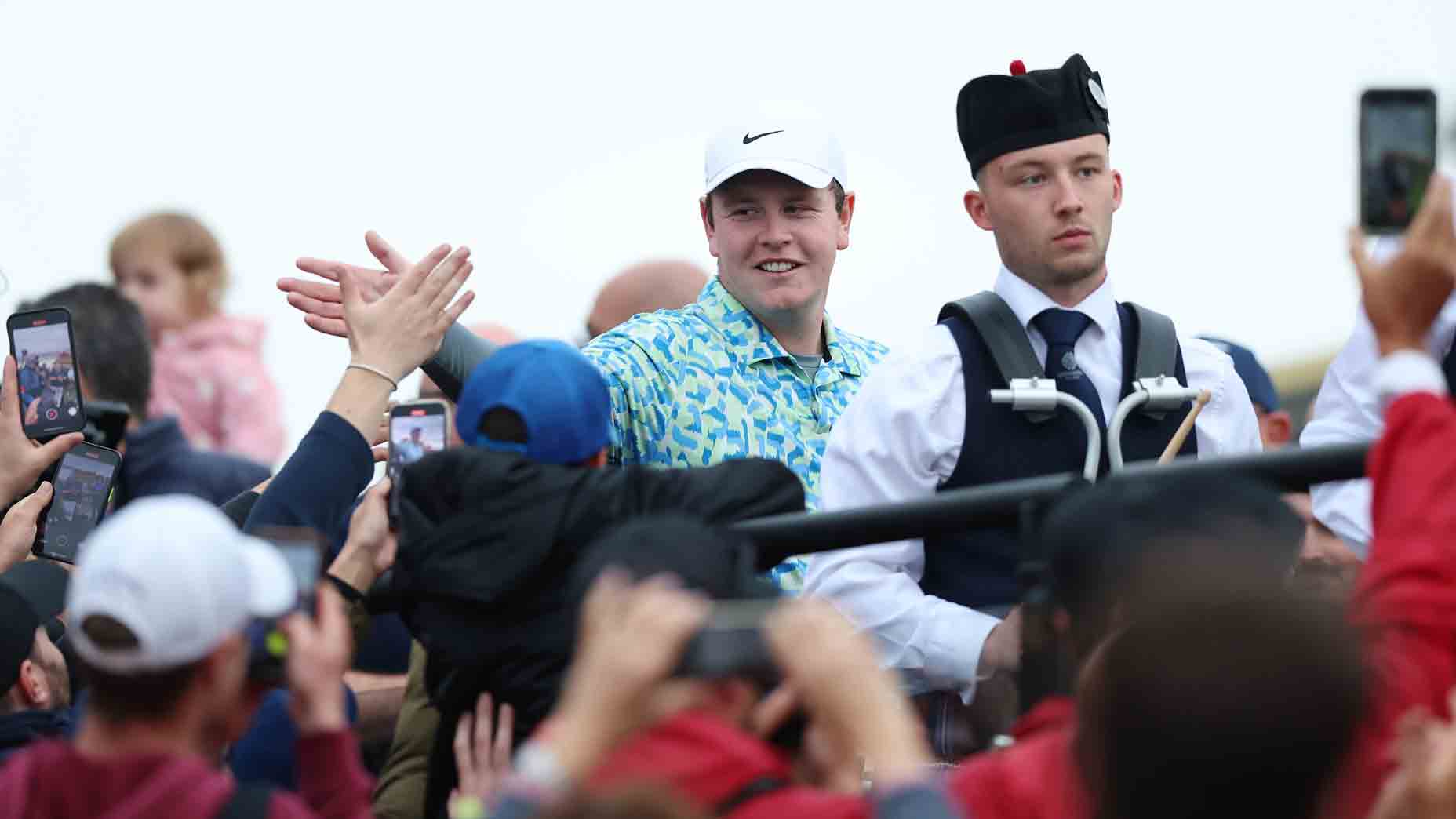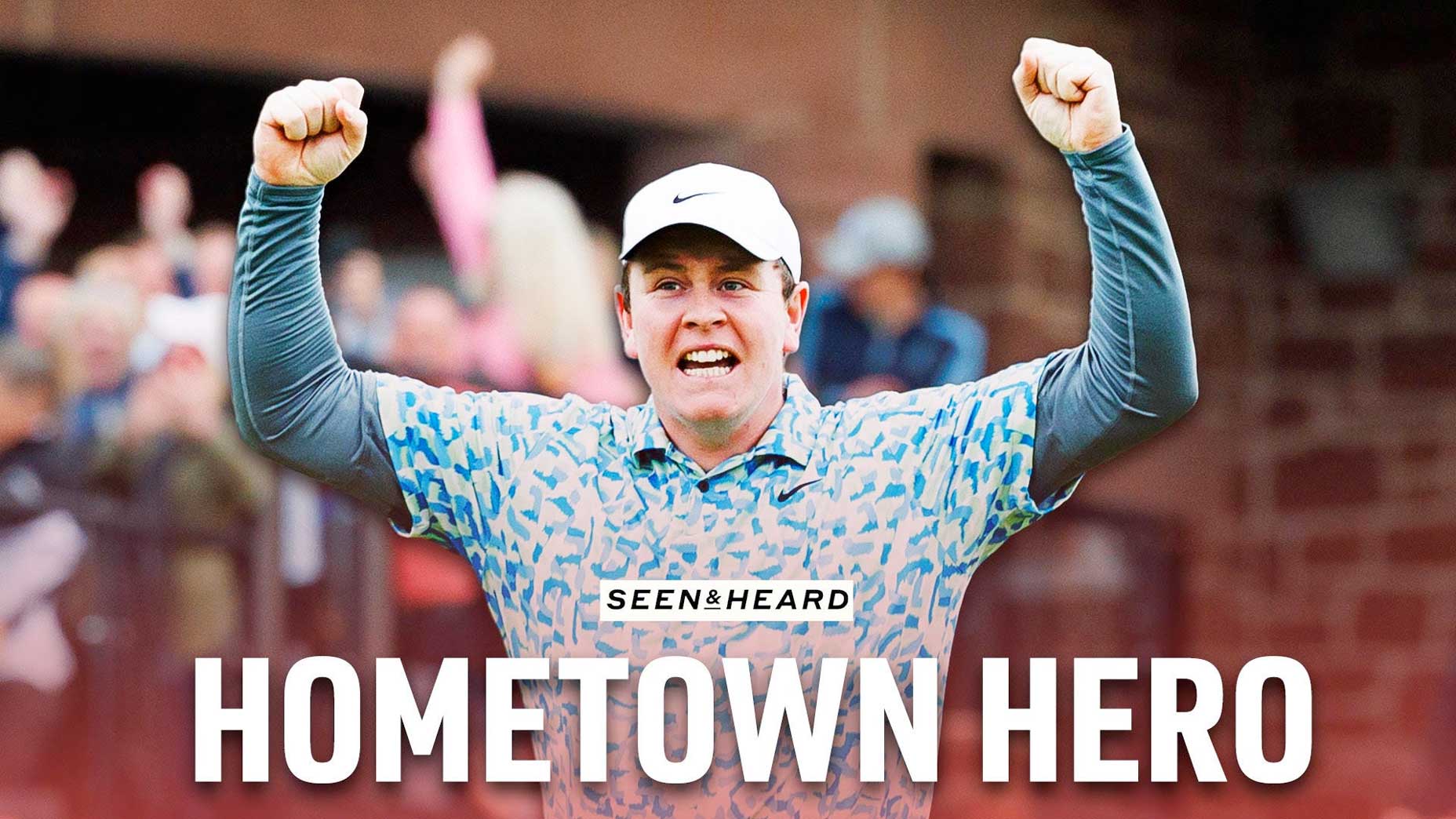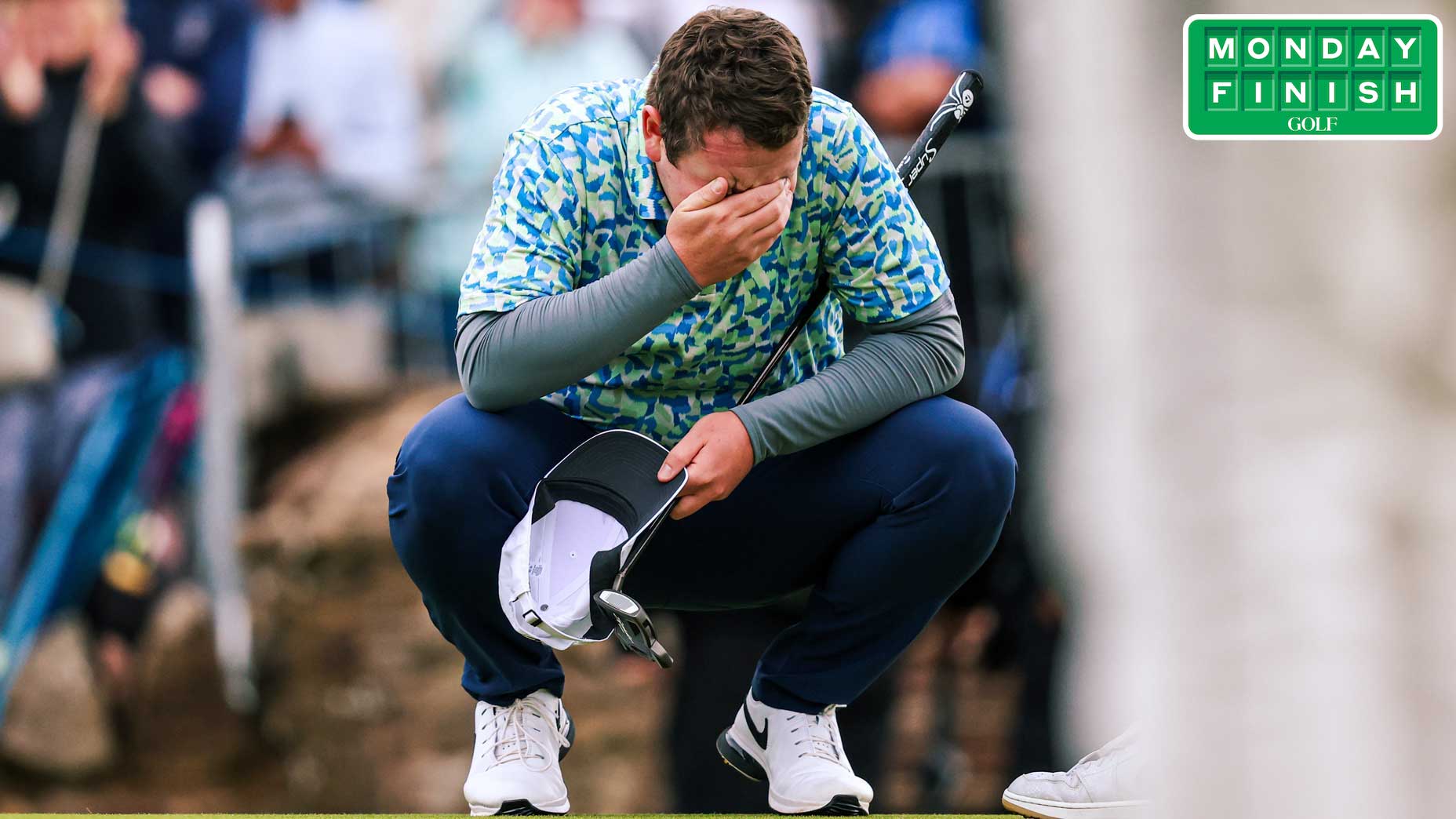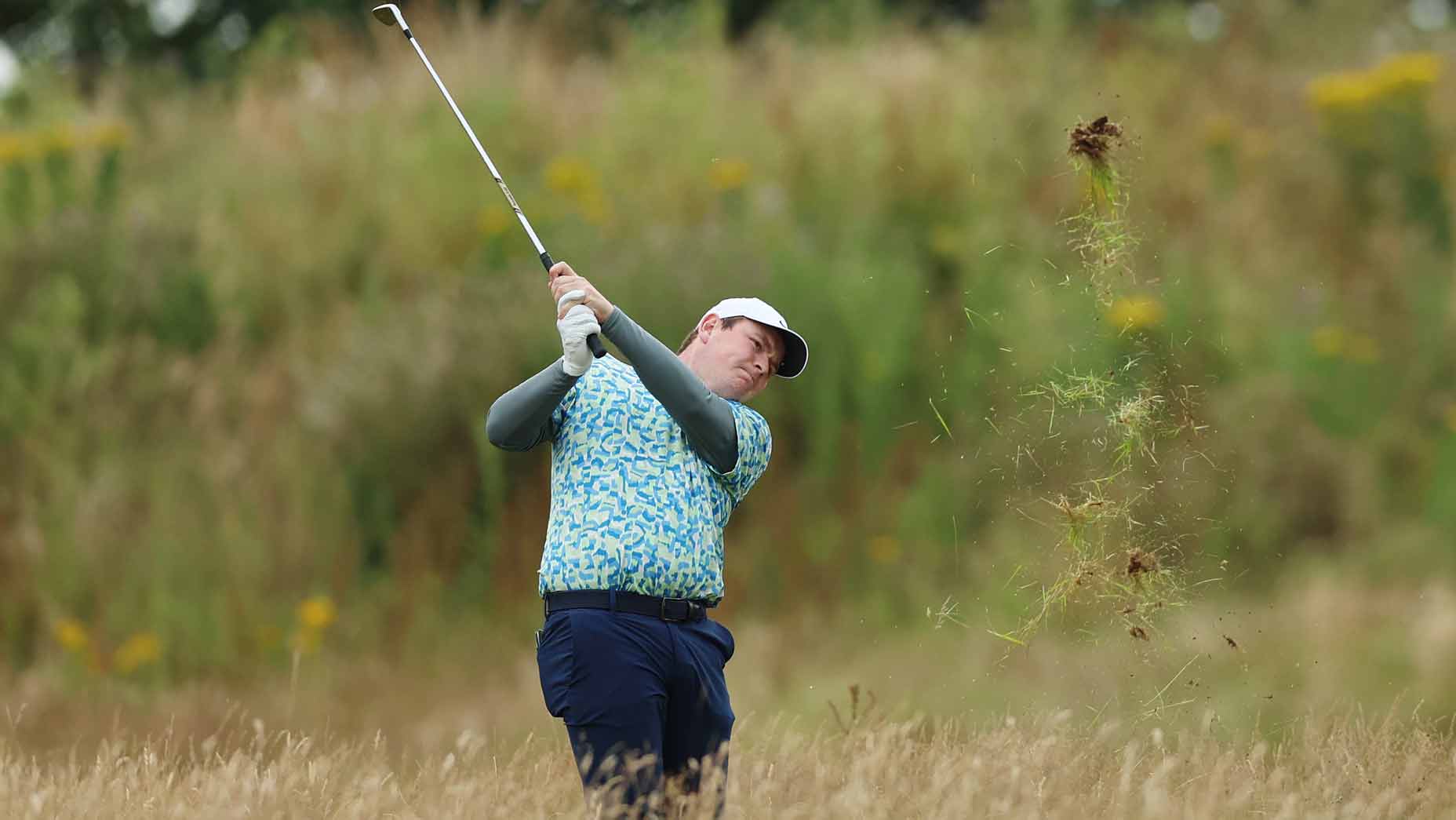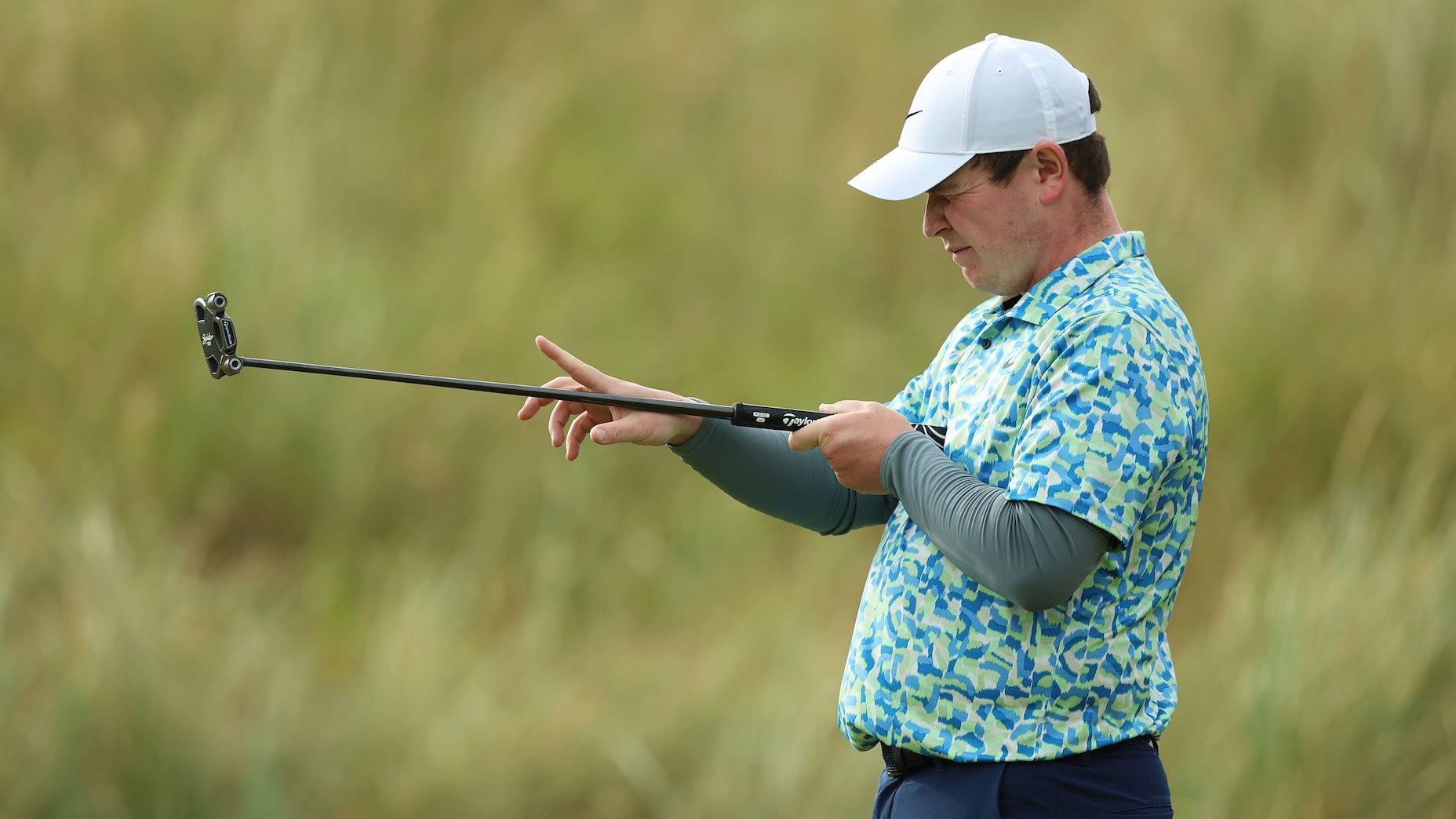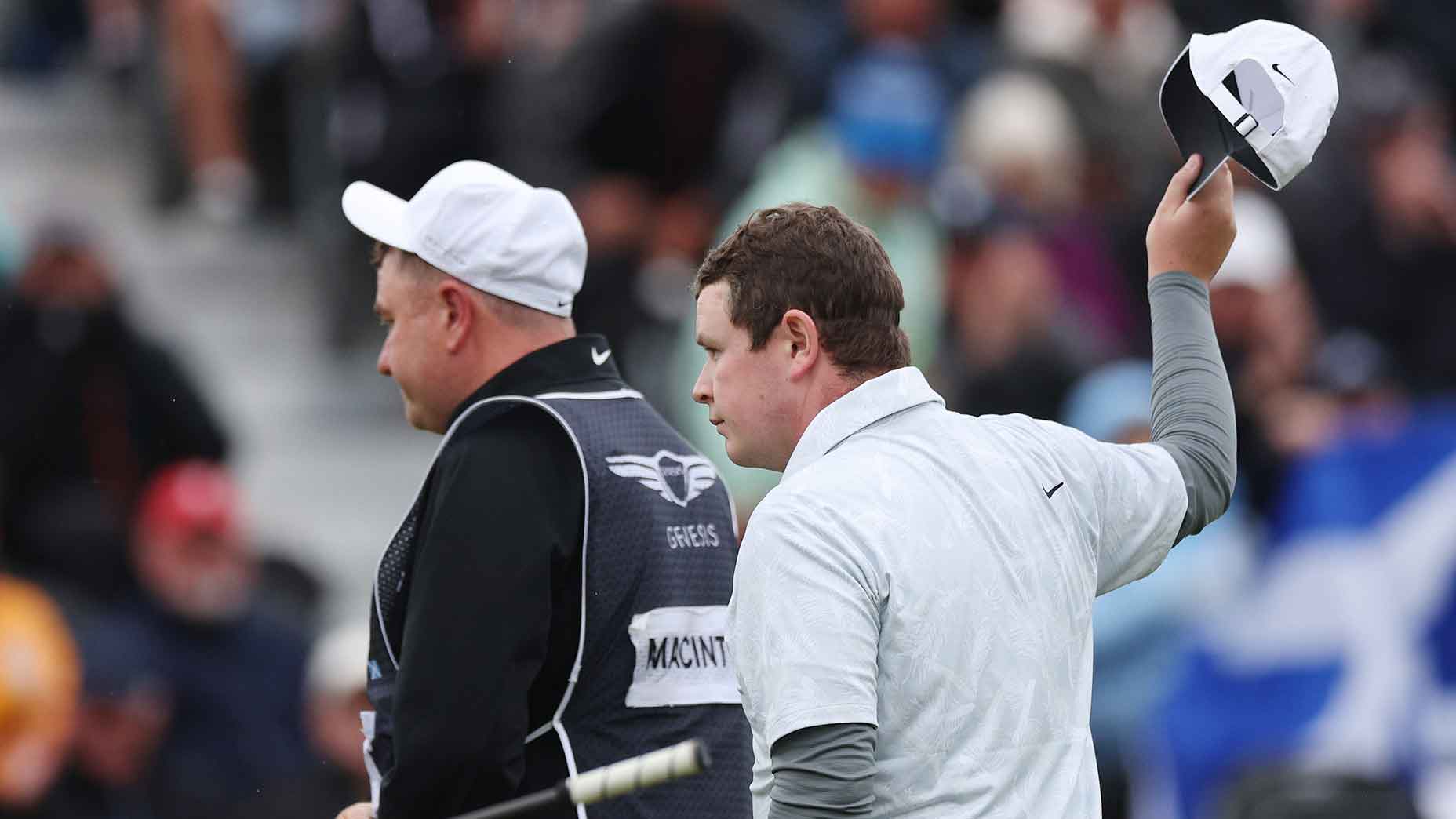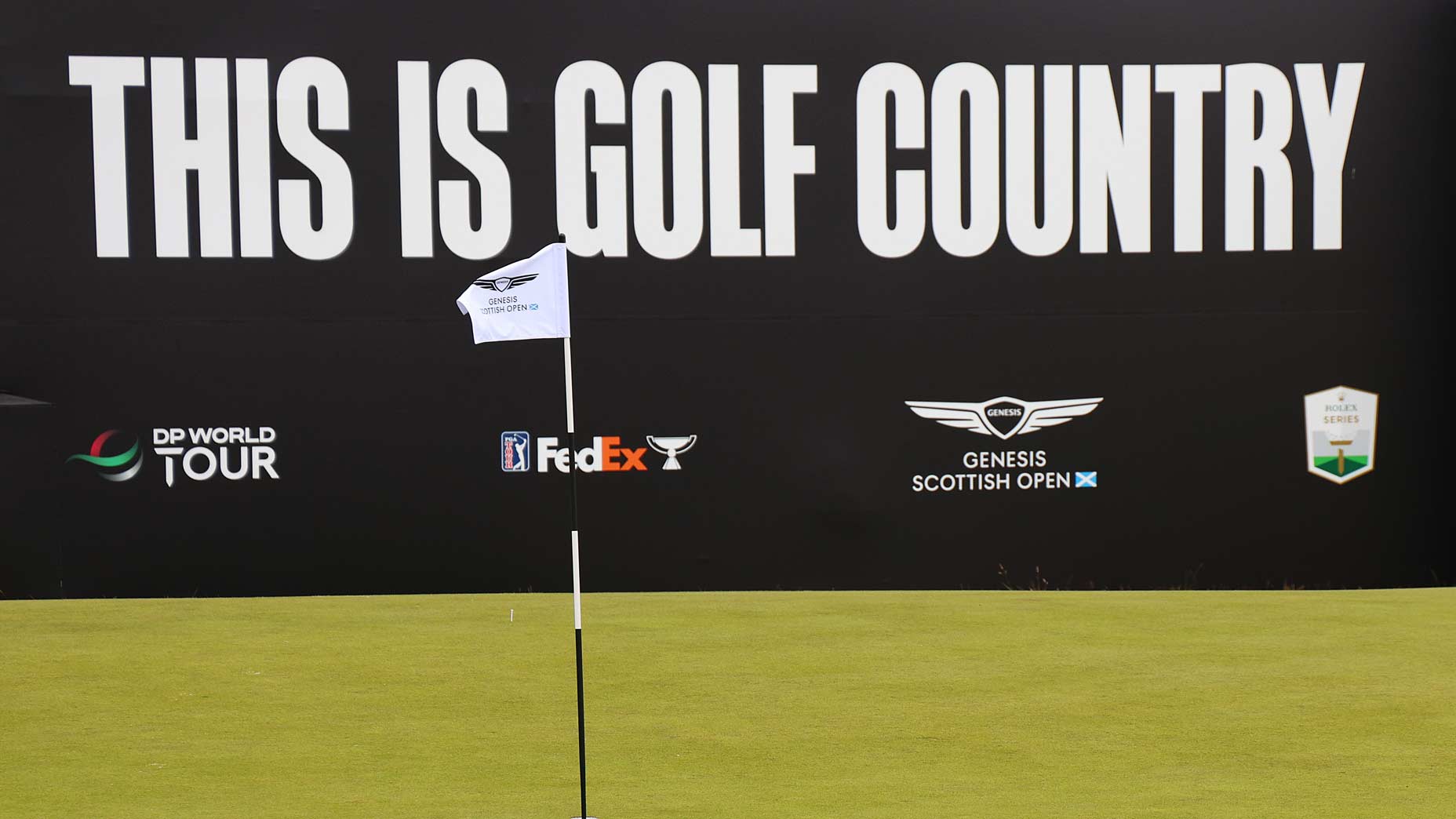In Scotland, golf is trying to fall in love again

The pro game's annual trip to "Golf Country" couldn't have come at a more important time.
Getty Images
GULLANE, Scotland — I’m not sure what the hell I’m doing here.
Not that I have anything against the Genesis Scottish Open, which the fine editors at GOLF have sent me to cover, nor the many top-ranked golfers in the field at this week’s event. It’s just that Scotland is a very long way from New York, and it feels even further when it’s home for just three days. My friends and family see too little of me as it is. Why, exactly, am I prolonging the effort for 72 hours of 55-degree dreariness in the middle of July?
The answer is everywhere at Renaissance Club, host of this week’s festivities. It is difficult to travel more than a few steps on property before it assaults your senses like Friday’s pelting rain, written on the grandstands in massive block lettering for all to see.
THIS IS GOLF COUNTRY.
The crooked borders of Golf Country extend well beyond the tournament gates, where dozens of courses sprout from the earth like fescue grass. There is a beloved local club in every direction, and no shortage of daylight hours, which begin around 4 a.m. and end after 10 p.m. With near-every Scottish course available for public play, there is also no shortage of epic tee times. The only problem is that everybody wants them.
“You can count on two hands how many phenomenal golf courses there are just in a four or five-mile radius,” says Jordan Spieth. “It’s one of my favorite places in the world to play golf.”
Most evenings during Scottish week, the fairways of Golf Country look more like freeways, packed with a steady stream of both golf power players (pros, caddies, agents, families, broadcasters) and complete nobodies (locals, surfers, golden labs). It is rare for this reclusive group to scale the walls of country club life out into the real world, but this is a rare week on the golf calendar.
“I thought I would just go out there maybe with a few clubs and chip-and-putt and walk with them,” Spieth said of the first 27-hole Tuesday of his professional career, which ended with a surprise round at North Berwick. “I ended up taking my bag and played all 18 holes. Played the first few and was like, I can’t really quit.”
This is why anyone with a sound mind and an expense account would bother hopping on a godawful redeye and driving an hour out to the coast. Because Scotland is the spiritual home of the golf universe. And because this week is one of the few real chances to cleanse the golfing spirit. And because right now, the golfing spirit badly needs it.
The truth is that golf has fallen out of love with itself during these grim last 24 months, and things have gotten so bad the sport can’t even agree on why. There’s a prevailing faith that things will eventually figure themselves out, but two years is a long time to not figure things out.
That’s what seems to have brought everyone here to Golf Country — the chance to glimpse back upon a more romantic version of the sport. Maybe we’ll remember we enjoyed golf all along. Maybe we’ll realize how silly all this has been. Maybe we’ll find a path forward together.
If there were ever a place to rediscover the magic, it would be here in Scotland.
NINETY MINUTES UP THE COAST, in St. Andrews, a group of my former bosses is about to sit down for dinner.
It’s a blustery evening in the home of golf, and the rain is expected to continue well into the night. It’s quiet at first among the group, most of whom have just been summoned from late-afternoon naps to the fourth-floor bar at the Old Course Hotel, but the conversation slowly swells to a crescendo.
The Old Course tends to have that effect on golfers, and particularly on this group of golfers: a baker’s dozen of wide-eyed fifty-and-sixty-somethings from the other side of the world. It is their first time in Scotland, and though many of them have experienced an embarrassment of riches in American golf, none of them have ever experienced anything like this.
A year ago, the group booked the quintessential bucket list golf trip: six rounds in six nights through East Lothian, with stops along the way in Edinburgh and St. Andrews. When it’s over, the men will have played all of the “Golf Coast” hits: Kingsbarns, Carnoustie, Muirfield, Gullane and North Berwick. Tonight, though, they will bask in the glow of the most historic round of the trip, the Old Course. From the back room of the trendy South St. restaurant where arrangements are set for a group of 13, it’s clear Scottish golf has already stolen their hearts.
“I must’ve hit a drive that went 400 yards,” one member of the group tells me giddily.
Another rolls his eyes.
“I must’ve hit about 400 shots out of the same bunker.”
“I just can’t believe how open and accessible it all is. You can play anywhere. It’s unbelievable.”
I should state that I didn’t fly to Scotland just to join a group of 12 of my former bosses for dinner. The offer was simply too good to pass up. It’s not often a caddie finds himself the guest of honor.
My first golf job was as a looper at the Rockville Links Club, a tiny course on suburban Long Island. The men on this trip were my regular bags during my summers as a college student; a time I remember for acrid cigar smoke, Tito’s Vodka and a series of petty crimes committed within the confines of the cart barn.
By the end of my first month as a caddie, I’d fallen off the deep end for golf. In hindsight, perhaps some of that passion came from the people I worked for. The members were serious players, and sometimes very serious bosses, but most of them were decent people — the kind who kept in touch years after I’d left the club.
I arrived to find the room no duller than a few years prior, but noticeably grayer. As we were handed the menus, the group traded withering insults and, in a new development, reading glasses.
“Look around the table. Look at how old this group is,” the ringleader, Chris, said in a tone that was only half-joking. “If we waited another 10 years, we never would’ve been able to do this.”
The clock was ticking louder now for the group than in the days I knew them. They had lost a dear friend, another member at the club, early in the pandemic. When the shock wore away, the mandate set in.
“We had to do this now,” Chris said.
As the main course reached the table, I sensed an opportunity to ask the question I’d been pondering all day.
“You guys have played golf for six straight days now. Do you still like it?”
One member of the table immediately caught my eye.
“No.”
He paused.
“I love it.”
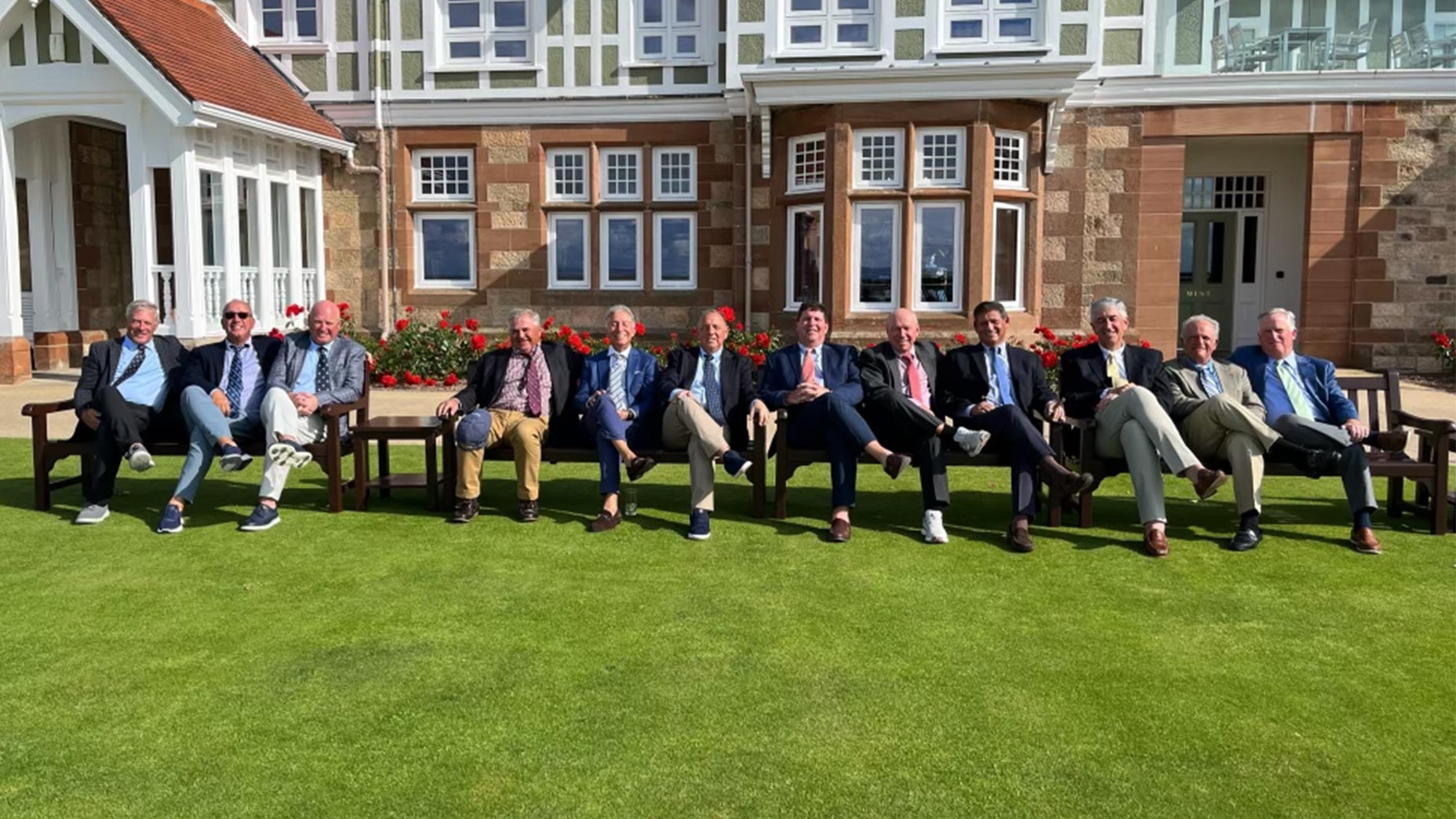
GOLF IS IN A CRISIS OF CONFIDENCE.
While the tours battle over their stake in the sport’s green, glistening future, they ignore an often gruesome present. A generation of fans has been conditioned to believe a few ugly truths about the sport: that it is little more than a vessel for moneymaking; that the sport’s biggest figures can be bought and sold; that the only meaningful people are the ones signing the check. Pro golfers have been told in no uncertain terms that morality, the bedrock of the sport, is at best a talking point and at worst a bargaining chip.
There is fatigue that comes with such an unrelenting news cycle — the kind that seeps deep into your bones. You can see it on the faces of those around the sport every week, and you can hear it in their voices.
“I don’t trust people easily,” Xander Schauffele said of embattled PGA Tour commissioner Jay Monahan. “He had my trust and he has a lot less of it now. I don’t stand alone when I say that.”
Fatigue is a dangerous thing in the modern professional sports world, where attention is lost in a nanosecond. Tire your audience for too long and you’ll risk apathy; land yourself an apathetic audience and you’ll find you have no audience at all. That possibility should concern the tours deeply.
“As long as I get to play golf, I’m happy,” said Rory McIlroy. “Quite of a bit of apathy toward everything [else] at the minute.”
But if there’s at least one place in the golf world where fatigue gives way to energy, it’s Scotland.
Everyone who’s been here will tell you so, and not just because they’re all scheming their way back. The energy here comes from something deeper — something ingrained in the people. It stirs even the most hardened golfing spirit, and not even Rory can put his finger on it.
“It’s …” McIlroy said, pausing for a few seconds. “It’s hard. I was going to give Scottish golf fans a really big compliment, but it’s probably gonna offend a lot of people elsewhere in the world…”
MCILROY WOULD NOT HAVE OFFENDED the Americans who rose in St. Andrews on Saturday. A stormy evening had given way to a gorgeous morning, warm and blue, and the group of first-time visitors was in full swoon — not that you could tell from hearing them. After six days, their weeklong team competition was tied. Now, at Kingsbarns, they had to find a winner.
“Why can’t we just end in a tie?” one of the bosses had asked.
“Because that’s anticlimactic,” another one shot back.
Someday soon, perhaps as quickly as Sunday, they will long for the morning they bitched about handicap strokes and pairings from the Old Course Hotel. They wouldn’t dare say it to one another now, but they didn’t need to. In private moments, the truth came flooding out.
“This is not just the trip of a lifetime,” one of the bosses told me. “This will likely be the greatest trip of my life.”
JUST DOWN THE ROAD, in Golf Country, the journey was only beginning. McIlroy charged out of the gates Saturday morning and delivered a vintage 67, appearing on the cusp of his first victory in months on the eve of the Open Championship.
McIlroy is hardly romantic about Scotland — he says he “takes it for granted,” given his childhood in the British Isles — but it didn’t take long to know how satisfying it would feel to land a victory in front of the Scottish faithful.
“They’re so knowledgeable,” he said. “The support I had last year in St. Andrews was something I don’t think I’ve ever felt before in my life.”
Satisfying on two levels, one supposes. It’d been a difficult two years for McIlroy, who balanced major heartbreak with duties as the spokesperson — and later “sacrificial lamb” — for pro golf. A victory would wipe the slate clean ahead of a return visit to Royal Liverpool, where he won The Open nine years ago, setting the stage for a week as the undisputed favorite. A victory would also provide a glimpse of the unbridled joy that first endeared him to the sport more than three decades ago. The latter wouldn’t bring any of the fame or fortune of the former, but at this moment in golf, it might have been even more meaningful.
“I still remember my first Scottish Open at Loch Lomond 18 years ago,” he said. “Eighteen years is too long without picking up a trophy.”
IN NORTH BERWICK, the only trophy was sunshine. As blue skies stretched high above the sea, a woman arrived at the first fairway. A large black lab trotted happily along her side. Back at the tee, a golfer punched a five-iron that skittered into the fairway. The sound of metal sliced through the quiet.
“He’s thirteen,” the dog’s owner said as he charged out to the grass, flirting with the tee ball. “He adores this morning walk.”
Soon the dog and the woman were gone. In the fairway behind, the foursome appeared. They laughed as they began their journey into the great beyond. I didn’t know them, but I knew why.
It was morning in Scotland and love was in the air.


